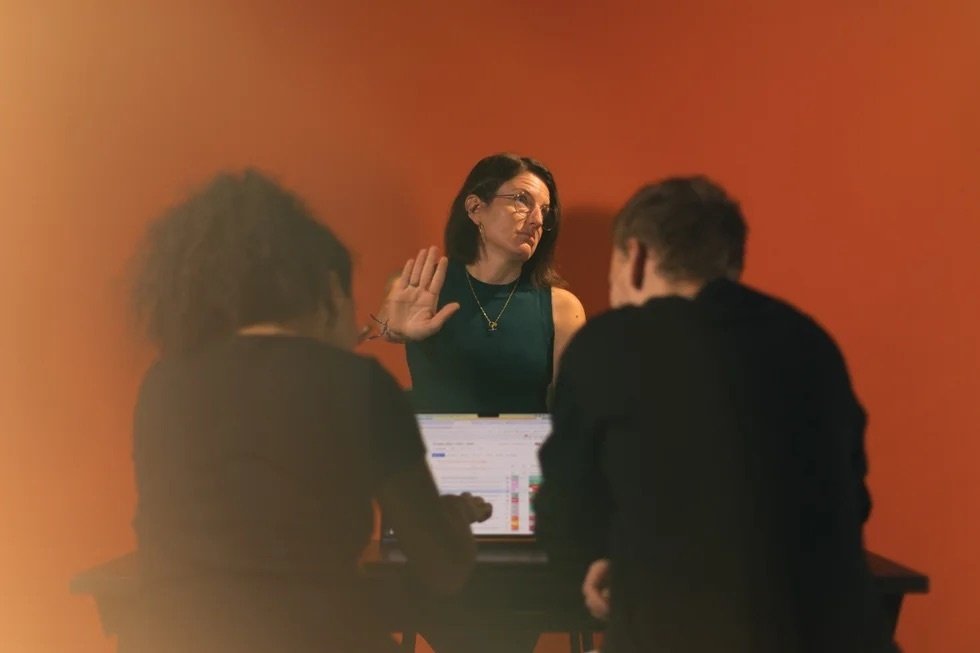Young workers on unpaid internships: Was it worth it?
Sep 12, 2024
6 mins


Freelance writer and translator, ex-recruiter
According to the National Association of Colleges and Employers, 68% of interns get a full-time job offer at the place they’ve been working, which sounds like a pretty compelling reason to apply for an internship, but in 2022, 47% of internships were still unpaid. This creates a staggered playing field where those who can’t afford to work for free or pay to travel across the country for their dream role end up missing out on what could be a great opportunity for their future.
For companies, this means they may well be missing out on some of the best candidates, leading to a less diverse workforce. So, are unpaid internships worth it? Do they help you learn and grow? More importantly, will they help you land the job you want? Localization intern, Savannah Johnston Hernandez, and internship coordinator and former intern, Tia Knowles, share their thoughts on internships in general and the difficulties with unpaid internships.
The benefits of internships
Internships are billed as something that looks great on your CV, an opportunity to get real-world experience, learn new skills, and develop on the ones you’ve learned in your studies. They’re also great for deciding if the career you’ve been considering is right for you. Here’s what Knowles and Johnston Hernandez feel they gained from their unpaid internships:
The chance to upskill
A great selling point for an internship is your opportunity to learn. In her current internship, Johnston Hernandez feels the company is “Very good at pushing me, even with things I haven’t done before or I’m not very knowledgeable in. They are very good at encouraging me to do it, they know I can so they’re pushing me to that point. I don’t think it’s unreasonable. I’ve appreciated it and liked being able to grow and learn.” In addition to helping the team with their day-to-day work, she has two projects to work on with goals to achieve throughout her time with the company. She says that she has really enjoyed that aspect of it.
Knowles now coordinates the internship she was once part of. It involves Zoom learning sessions with different people from the automotive industry, a media project, and an in-person meet-up with a chance to gain insights for their final project. When asked if she benefited from the program as an intern, her answer is convincing. “Benefitted? Yes! One thousand times yes!” From writing professional emails and learning how to communicate to gaining knowledge of the automotive industry and honing her media abilities, Knowles walked away with many new skills.
Mentorship
Whether it’s on the job or beyond the internship both Knowles and Johnston Hernandez praise the benefits of having a mentor in your corner. Johnston-Hernandez shares that in her current internship, “They’ve had a mentor who is my go-to person to ask any questions and she did all my training.”
For Knowles, it goes even further, as mentors are one of the key takeaways she has from the internship program. “When I was an intern, you always had someone to reach out to. The instructors are always available to help, so they want you to reach out to them. Even now, as the internship coordinator, I am the main contact for the [interns] to reach and then I’ll connect with the instructors above me. We encourage [them] to reach out to us”.
She has also had a great experience beyond the program with mentors she met— one of her mentors even managed to pitch her to someone and get her a job offer. “He ran into someone at General Motors and pitched me and they offered me a position. At the time I wasn’t able to take it because I did want to finish school, but it just opened the door for a lot of different opportunities that I was grateful for.”
Networking opportunities
Networking is a useful skill for anyone who wants to progress in their career, regardless of experience. Getting to know people in your industry opens doors that might otherwise be closed. Knowle’s internship is designed exactly to do that. “I would say the best thing about the internship is all of the people you get to network with. People who come on the program are very open and willing to help students get access to an interview with their corporation.”
As an internship created for HBCUs, networking is a key goal. “It’s typically a lot of Black people, it’s typically harder for us to enter the business. So, I would say the best thing about it is having that network connection that is already in the industry and can help bring you up.”
Professional experience
When you’re learning particular skills, you aren’t always aware of how they fit into a company or the ebb and flow between teams. Johnston Hernandez says, “I feel like I’m learning more about how things work and not just my role but all the other roles as well. We have work that touches a lot of different departments and different teams which I think has been really helpful for me to get a grasp of what the bigger vision is.”
The truth about unpaid internships
Arguably, the biggest issue with an unpaid internship is how a student supports themselves while participating in it. An NSCI survey showed that 40% of students interviewed would have liked to take on an internship but didn’t because they had to work at their current job, while 31.6% responded that their reason was insufficient pay. If you consider that the same research showed that students travel an average of 315 miles for their internship, it isn’t that surprising.
Johnston-Hernandez tried working in an unpaid internship and while she found what she was learning useful, she still felt it wasn’t quite as well organized as her current paid internship. However that wasn’t an issue, the main problem was supporting herself, which meant working two jobs to pay the bills.
“I gave parity to the job that paid, even though it didn’t have to do with my career goals in the future. I needed money at that point. I was a poor college student, so I thought, ‘Well, I could do another hour for my internship or work a little more at my job.’ I felt that it was more worth it to get more money for working at my job. So, I felt I wasn’t as dedicated to the project I was working on in my internship as I have been in an internship where I have been paid, because I was able to give so much more time.” It wasn’t just a case of prioritizing, working two jobs was ultimately too much, the exhaustion levels became unbearable and Johnston Hernandez felt she had no option but to quit the unpaid internship.
Weighing the benefits
For an internship to be unpaid, it legally should have the intern as the “primary beneficiary” meaning the work should be of use to the student before being of use to the company. Of course, you can’t know whether that’s the case until you’re already working there. It’s also worth considering that companies value what they invest in. Are they going to trust you with important work if they aren’t paying you for it? Are they likely to offer you a job when they can just replace you with the next intern who is willing to do the work for free?
Is it fair?
Unpaid internships have also been criticized for their elitism because not everyone can afford to work for free. Knowles agrees that unpaid internships are not ideal. “I feel like it’s great to get experience but at the same time, it’s like unpaid internships shouldn’t be a thing considering we’re doing hands-on work. I feel like a lot of places now try to do unpaid internships but require you to do almost entry-level work.”
“I’ve always disagreed with unpaid internships. I don’t feel like it’s fair to the people who are applying, typically people who are in school and have other responsibilities. I understand getting the experience but I feel like for the labor you should at least be giving us something, especially if it’s full-time.”
Are unpaid internships worth it?
Both Johnston Hernandez and Knowles agree that internships are pretty great. Johnston Hernandez says she’s really enjoyed them, “In all of them I grew and I learned, I loved them! I think that they’ve helped me a lot, helped me get where I am. So, I’ve been very grateful for them, especially when they’re paid!”
Knowles concurs, “It’s a great experience. It definitely opens the door for more opportunities beyond the internship. The instructors, including myself, definitely open the door for people coming up behind us. Ultimately it’s a wonderful, wonderful internship.” Still, it seems that both agree that unpaid internships don’t quite measure up.
Sadly, in highly competitive and creative industries, getting an internship is still considered one of the main ways into the profession. It’s worth remembering that any internship on your resume can help you land a job. So, if an unpaid internship is your only option, and you can afford to take it and keep up the pace without burning out, then it could worth your while.
Photo: Welcome to the Jungle
Follow Welcome to the Jungle on Facebook, LinkedIn, and Instagram and subscribe to our newsletter to get our latest articles every week!

More inspiration: Our relationship with work

Advice for people pleasers: Breaking free from being “too nice” at work
Do you often say things like, "Yeah, sure, I can do that!" when in fact you don't have the bandwidth to do that? We've got you.
Dec 12, 2024

There’s no place like home: Does relocation hurt productivity?
Relocating often brings homesickness, but it’s part of the journey. Here’s how to embrace the change and make the most of it.
Oct 22, 2024

Should you take your office crush to the next level?
Is an office crush worth the risk, or more damaging to your career and reputation than you think?
Oct 09, 2024

Sleeping less to succeed more: Do CEOs sleep as little as we think?
In today's fast-paced corporate world, a common belief is that successful leaders, particularly CEOs, need less sleep to achieve their goals.
Aug 26, 2024

The do's and don'ts of working remotely on vacation
Can you truly combine work and vacation? With remote working becoming more popular, many are exploring their options.
Jul 18, 2024
The newsletter that does the job
Want to keep up with the latest articles? Twice a week you can receive stories, jobs, and tips in your inbox.

Looking for your next job?
Over 200,000 people have found a job with Welcome to the Jungle.
Explore jobs